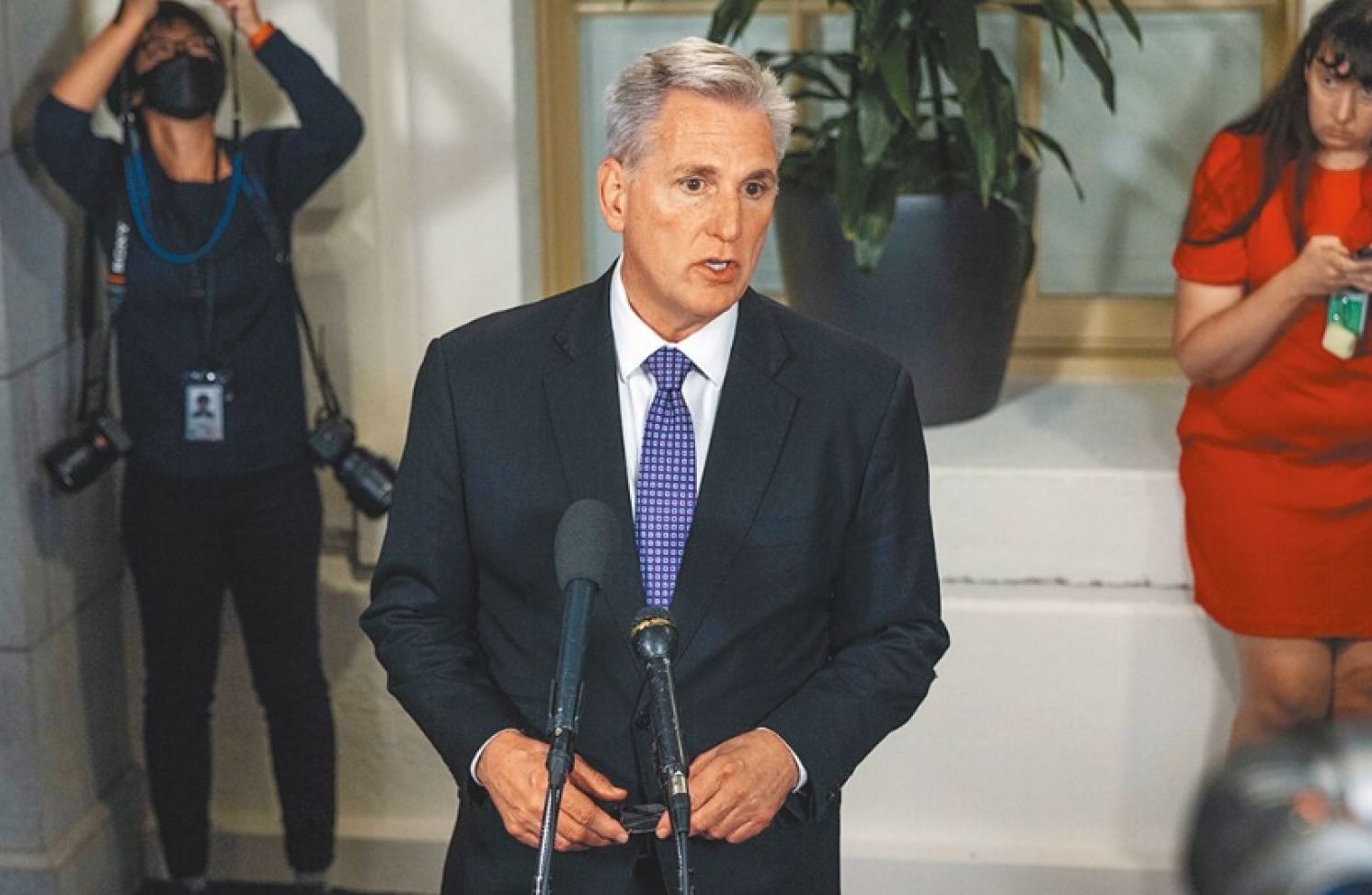
McCarthy's Downfall:A Lesson for Taiwan
China Times Editorial, October 5, 2023
Representative Kevin McCarthy was ousted from his position as speaker of the United States House of Representatives. With the House in disarray, the position of the United States as a paradigm of democracy is once again under significant strain. If the turmoil persists in the short term, it may impact America’s status and prestige as a global leader, and American security aid to Ukraine could also suffer "collateral damage." Since Taiwan’s security relies on U.S. commitments, this issue is crucial for Taiwan.
Representative Michael McCaul, chairman of the House Foreign Affairs Committee indicated that Mr. McCarthy's resignation is detrimental to Ukraine and damages America’s international image, saying, "This will only embolden our adversaries, such as China, which has already viewed democracy as dysfunctional." Richard Haass, former president of the Council on Foreign Relations, warned that what keeps him up at night is the threat to world security coming from the United States itself. The fragmentation of the American system represents an internal threat that surpasses external ones for the first time, the United States has become the most profound source of instability and an example of the uncertainty that comes with democracy.
Mr. McCarthy's removal stemmed from his personal political integrity issues, which have left the conservative faction within the Republican Party dissatisfied. However, it reflected systemic problems. Budgetary expansion and legislative-executive confrontations have made it possible for the federal government to shut down at any time, affecting the implementation of U.S. foreign policy. Throughout the entire dispute, the Biden administration's unconditional aid to Ukraine was one of the key points of contention.
According to statistics, the United States has provided as much as $76.8 billion in aid since Russia's invasion of Ukraine in February last year. In this recent budget standoff in Congress, an additional $6.1 billion in aid for Ukraine was allocated. The Republican Party would oppose the Biden administration's continuous expansion of the budget, especially the open-ended aid to Ukraine, seeking to reduce spending through appropriation bills. This often leads to political deadlock and even forces the federal government to shut down. This year, history repeated itself as Mr. McCarthy compromised with the Biden administration. Congress passed a "temporary spending bill" without aid to Ukraine, allowing the federal government to operate until November 17, with negotiations for a proposed "comprehensive bill" to replace individual appropriation bills. This stopgap measure angered the conservative faction led by Representative Matt Gaetz, leading to a motion to bail out Mr. McCarthy in the House, which passed with 216 votes to 210.
The House is currently in recess and shall elect a new speaker before resuming operations. Following that, they need to address the challenging appropriation bill before the November 17 deadline; otherwise, the federal government will still face the possibility of a shutdown, and aid to Ukraine will be on the line. President Joe Biden has expressed concerns that the chaos in Congress after Mr. McCarthy's removal could jeopardize his commitments to Ukraine, and the Department of Defense has already warned that military assistance to Ukraine is running low.
The U.S. government budget and the operational developments in Congress have become increasingly unpredictable, imposing a significant burden on American foreign policy. Apart from the Russia-Ukraine war, the fallout from Mr. McCarthy's bail-out will also impact the U.S.-China strategic competition. The summit between Biden and Xi Jinping tentatively scheduled for November in San Francisco may influence Mr. Biden's negotiating position to some extent.
Witnessing the dynamics in the House, it's evident that while anti-China and anti-Russia sentiments might be the maximum consensus on Capitol Hill, it doesn't necessarily mean that the Republican Party is willing to provide unconditional assistance to Taiwan and Ukraine. Though President Biden announced in July the provision of $345 million in military aid and $80 million in military financing for Taiwan, this move could be affected due to a possible boycott from Congress.
According to the latest U.S. polls, President Biden is trailing behind former President Donald Trump, with 42 percent to Trump's 52 percent. If Trump were to make a comeback, there would likely be adjustments in American foreign policy, with diplomatic and security commitments coming under scrutiny. In view of growing dissatisfaction towards endless assistance to Ukraine among Republicans and the public, Taiwan should take heed and understand it is a high-risk gamble for the ruling Democratic Progressive Party (DPP) to entrust Taiwan’s security entirely to the United States.
From: https://www.chinatimes.com/opinion/20231005005285-262101?chdtv